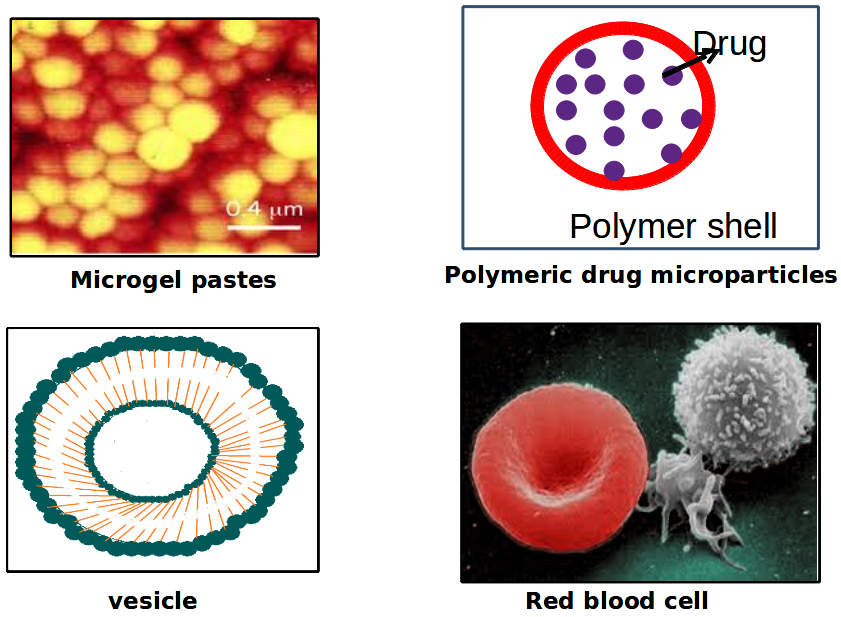Research > Particle-Liquid Suspensions
In our group, we study the rheology and dynamics of hard, soft and active particle suspensions via analytical, computational and experimental techniques. We confine ourselves to the viscous dominated regime of Stokes flow (Re << 1).
The study of rheology and dynamics of hard sphere stoksian suspensions is of industrial relevance (e.g. in paints, pharmaceuticals etc.) as it influences the performance of the downstream processes. For example, it has been known over the last three decades that Stokesian suspensions through pipe lines develop an inhomogeneous distribution of particles due to shear induced migration. In our previous work, we have conducted analytical, computational and experimental studies to relate the shear induced migration of particles to normal stress differences and shear induced particle pressure of the suspensions.
Our current work involves the rheology and shape dynamics of soft particle suspensions, and the flow of suspensions near a surface that is permeable to the fluid. Examples of soft particles are red blood cells, synthetic capsules, vesicles and micro-gel pastes (Figure 1). The study of soft particle suspensions have numerous applications in bio-fluid mechanics, food industry, emulsion and hemo-rheology. The complex dynamics of soft particles depend on particle shape, elasticity, fluid viscosity, and concentration. We are interested in the experimental investigation of effect of deformation on the shape and kinematics of elastic capsule in simple shear flow.

Figure 1: Examples of soft particles

